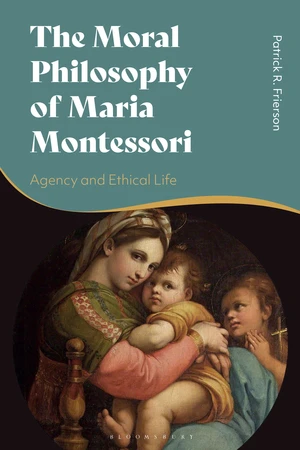In the first scholarly exposition of Maria Montessori's moral philosophy, Patrick R. Frierson presents an empirically-grounded ethics that takes its start from our tendency to strive for excellence and emphasizes mutual respect, social solidarity, and love. Laying out a compelling, Montessorian approach to ethical life, Frierson constructs an account of human agency based on children, who when attentively at work on self-chosen tasks, have agency worthy of respect. Through this interpretation of children's agency, he introduces the core concept of Montessorian âcharacterâ: in Montessori's ethics, character provides the ultimate value worthy of direct respect, and those with character have a natural tendency to respect others. Character is enhanced through corporate forms of agency that Montessori calls âsocial solidarity.â Weaving this educationalist's ethics with theory from Nietzsche, Aristotle, Kant, Hegel, and Marx, Frierson places Montessori in the context of the history of philosophy. His study effectively unites philosophy and education, showing how human ethical life can be enhanced through a moral theory based on the respectful attention to the lived agency of young children.
Price history
Nov 18, 2022
€88.33

